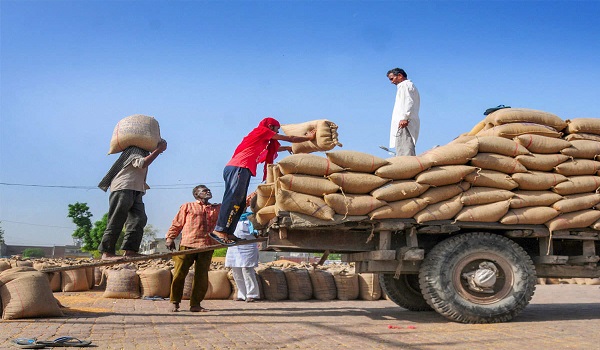Punjab’s four state procurement agencies were to acquire 5,000 wooden crates to store food grains. Instead, just 625 were purchased. Officials blame the Ukraine war, a government food security plan, and a heat wave as factors for the project’s failure to take off.
The project called for 5,000 wooden boxes built by the Punjab State Forest Development Corporation (PSFDC) to be sent to four state procurement agencies for grain storage.
An “increase” in wheat exports due to the Russia-Ukraine war, an “increase” in foodgrain movement under the Pradhan Mantri Garib Kalyan Anna Yojana (PMGKAY), “higher price” and “lesser” crop yield due to a heat wave in the last couple of years, and “minimal opening stocks” have all weighed on a Punjab pilot project.
Despite the fact that the Punjab Vigilance Bureau received a complaint last year saying that wooden boxes provided by a private player following competitive bidding did not satisfy criteria, this is what happened.
The crates are used to store wheat that has been purchased during the rabi market season. According to a food and civil supply department official, up to 3,200 to 3,400 bags of 50 kg each are stacked on the ground in a layer of 34 to 36 wooden boxes.
According to information in the media, all started on December 14 of last year when a letter was sent to the managing director/principal chief conservator of forests of PSFDC by the director of Pungrain and the food, civil supplies, and consumer affairs department. the state government “intends to procure wooden crates from the PSDFC, instead of private players, for storage of wheat to be procured during RMS (read: Rabi Market Season) 2023–24, which is scheduled to begin on April 1, 2023,” and that “over the last five years, wooden crates have been purchased through e-tenders invited online on the e-procurement portal of Government of Punjab of wooden crates having valid licence of saw mill.”
The food and civil supplies department gave PSFDC permission to purchase 5,000 wooden boxes “on pilot basis” at a cost of Rs. 1,155 each crate ex-depot plus 12% GST and provide them by April 1 in accordance with established criteria in a letter dated February 13. Only Pungrain and Punsup, however, each bought 625 crates for the season.
Anjuman Bhaskar, Joint Director of Punjab Food and Civil Supplies Department, offered the following explanation: “Increase in wheat exports due to Ukrainian crisis where Russia and Ukraine were locked in a war; unprecedented movement of grains under Prime Minister Garib Kalyan Ann Yojna; and heat wave taking toll on wheat yield across the country.”
According to Bhaskar, the “huge movement” of the grain and the “lesser yield” left “relatively very lesser opening stocks” and hence “lesser requirements of wooden crates”. However, Bhaskar said, “Even so, we chose the trial project and bought 625 of these containers for Pungrain and Punsup.
PSFDC must “enhance its production capacity” for a “normal year,” and it must also provide “competitive pricing,” she continued. In a competitive bidding process, the wooden boxes were available for “less than Rs. 500” as opposed to the PSFDC’s “over Rs. 1,200” price, according to Bhaskar.
The “quality appeared good,” she added, but only after actual use could anything definitive be established. She said, “But if one child of the government ends up losing over the other, it is not a good idea,” adding that if the quality is maintained, it would be fine to choose a state government agency instead of private actors.
According to Bhaskar, regarding the Vigilance Bureau investigation, “Our officials informed [the Vigilance Bureau] that boxes tend to lose weight owing to open storage and that there is depreciation. As we use the PSFDC-supplied crates for these items, we will need to evaluate them.
The chief general manager of PSFDC, M. Geethanjali, stated, “We did not want to start production before getting payments since we already had unpaid invoices from prior years and audit paras are pending over that. We have worked hard to provide by April because tree cutting began in March.
She said, “It takes time to stabilise because we just began a sawmill and manufacturing after a long break. We began cutting down trees and making crates after receiving orders in mid-February and advance payments in March.
Geethanjali continued, “In the future, if we get our orders and advance payments on time, we will ensure timely supply.”
In addition, Geethanjali stated, “The crates delivered by us would have a shelf life of more than 10 years as opposed to crates they used to acquire from private players, which had a shelf life of maybe two years. Better quality and more wood undoubtedly cost more money. We are giving them 50 kg boxes instead of the 20 kg they previously had.


